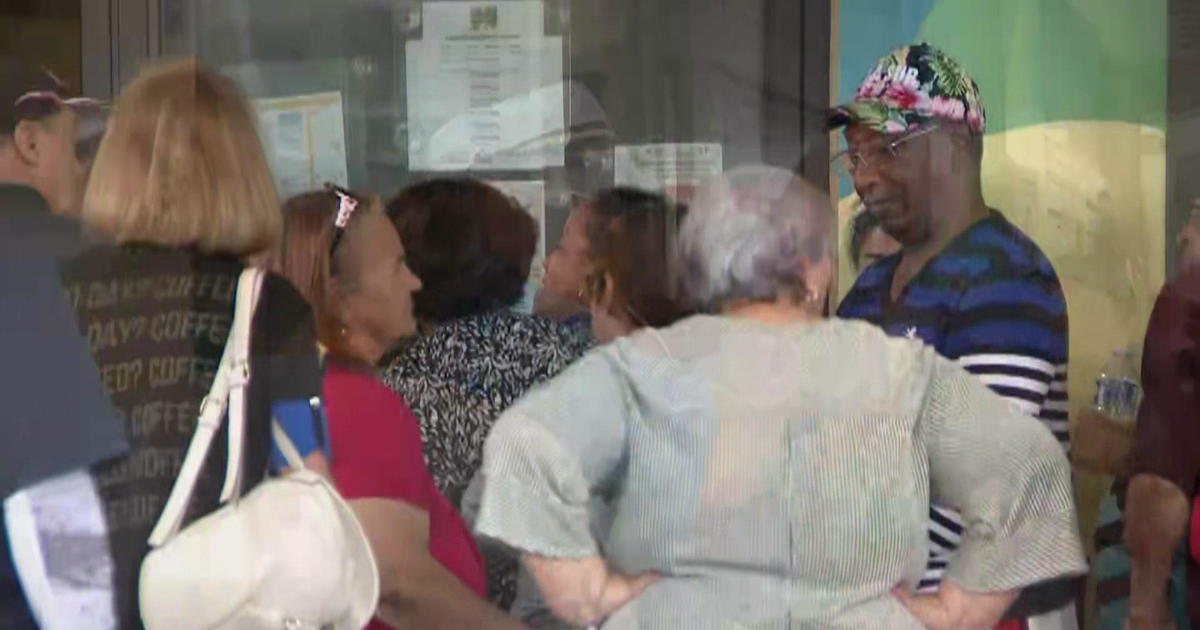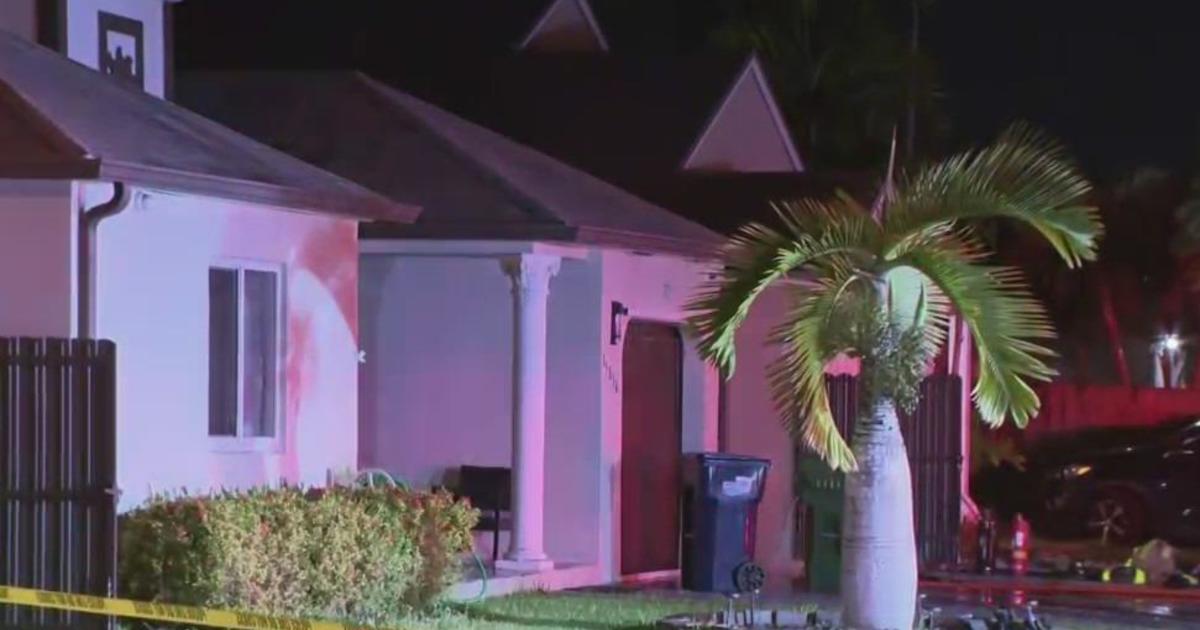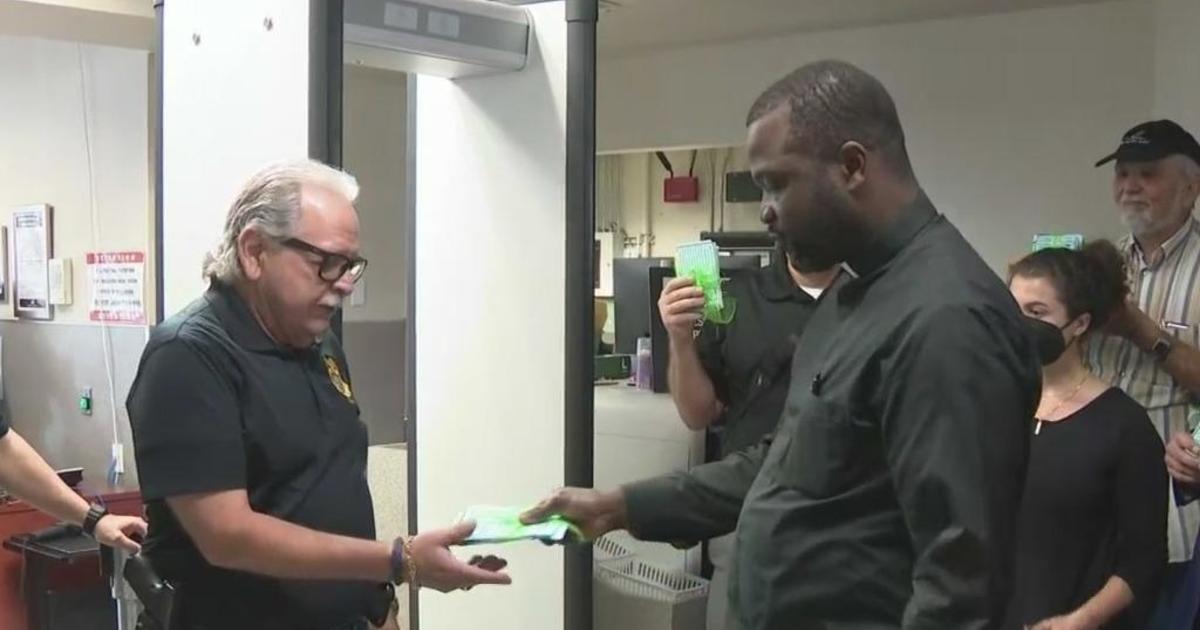Sleep Labs Making House Calls For Apnea Sufferers
MIAMI (CBS4) - It's a sleep lab that comes to you. It's a device you wear at night to decode the mystery and find out if you have sleep apnea.
An increasing number of women are trying this device because doctors are learning that, unlike men, with snoring and abruptly gasping for air in the middle of the night... the signs for women may be being tired, have insomnia, morning headaches or a whole lot of moodiness.
More and more women are being diagnosed with sleep apnea, meaning they can't sleep through the night because they repeatedly stop breathing.
Christy Hartsook is one of those women. "I would wake up between 4 and 5 times an hour that I was not aware of."
Hartsook of Palmetto Bay was not getting enough oxygen. She told CBS4's Cynthia Demos that it wasn't just a problem for her. Her interrupted sleep started disrupting her husband's sleep as well.
"He would say, how did you sleep last night? Did you sleep good... cause I didn't," said Hartsook.
For Eduardo Borrego in Coral Gables, he had to get a sleep test before his gastric bypass surgery. He was tested for sleep apnea.
"Now I know for sure that I have it," said Borrego.
Two people. Same problem. Same test. But in the end, different remedies.
First... the test... the In Home Sleep Lab. It's called the Watermark ARES, which stands for Apnea Risk Evaluation System. They put the ARES on, turn it on, sleep with it, turn it off in the morning and send it to the lab.
Jeffery Rosen is a family physician. "It's much more convenient and less obstructive to the patient's life."
Dr. Rosen says they read the results and come up with a new sleep plan for the patient.
He says women are often misdiagnosed with depression when they really have apnea. If it goes untreated, it can lead to serious weight gain.
Rosen said the in home testing helps tremendously because 40% of the time that people are suppose to go to a sleep lab, they just don't show up. And 20-million people have sleep apnea. But right now, less than 15% are diagnosed.
Sleep apnea can have serious consequences. It is directly connected to diabetes, obesity, congestive heart failure, hypertension and stroke. It's a sign that a bigger problem is likely around the corner.
That's why Christy and Eduardo were so glad to find out how they could stop the apnea. The two had very different doctors orders.
For Eduardo, the doctor prescribed this sleep machine. It pumps in oxygen as he sleeps. It's called a C-PAP. That stands for Continuous Positive Airway Pressure. It keeps your airway open while you're sleeping.
"You feel better, more energized, like you actually slept."
Eduardo hopes that after his gastric surgery, he will no longer have sleep apnea. His doctor said there's a chance that could happen.
For Christy, she was told she just can't sleep on her back anymore. She says as long as she sleeps on her side, she has a restful night and so does her husband.
"Yeah, I'm extremely happy I did this test," Christy told Demos.
Of the 81 sleep breathing disorders out there... 85% of the time, people are diagnosed with apnea... that is if they take the time to get tested. And yes... this device is covered by insurance.



